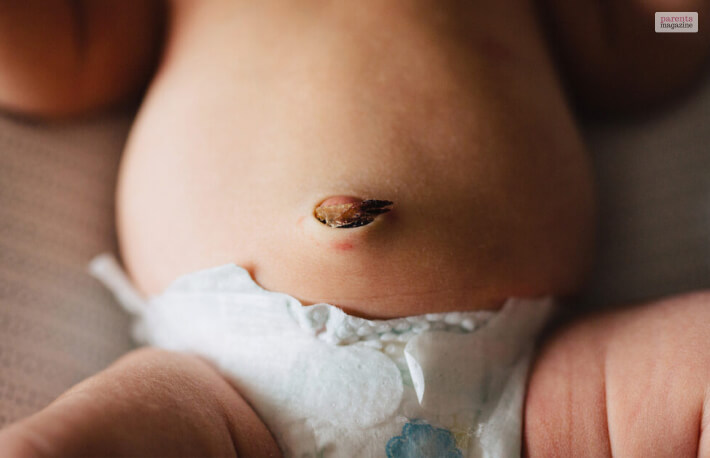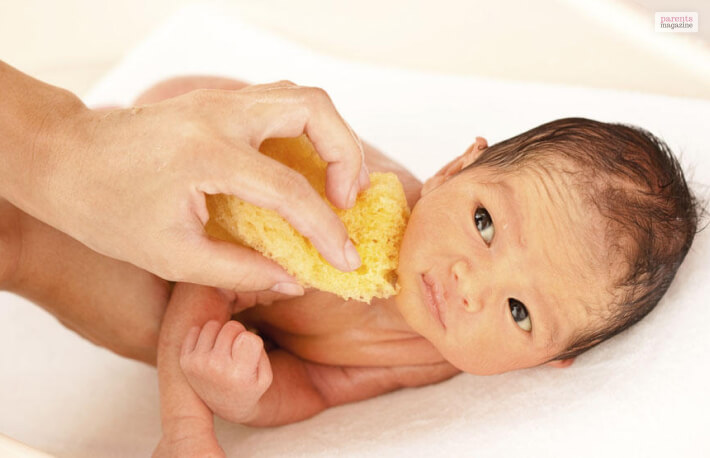
9 Ultimate Tips On How To Survive The Newborn Stage
Congratulations! You are a parent now. But are you prepared? Generally, you prepare well for pregnancy and labor. You read a lot of books about pregnancy and delivering the baby.
But what about the phase after that? After the baby is born? Are you prepared for the newborn stage?
If you have not prepared before the birth of your baby or if you are smart enough and reading this before getting into that phase, look nowhere else. We have got you covered. We are here to prepare you for this beautifully turbulent phase of your life.
It is time to bring the little one home and start the journey. Dont stress. You might feel scared now, but you should know that this phase will pass in the blink of an eye, and you will miss this phase forever. So enjoy this phase, and we are here to help you.
Physical Characteristics of Newborns
The birth experience enters two realms: magical beauty combined with dramatic physical shifts. Getting a grip on your baby’s physical attributes helps you navigate through this stage of life. Here are some key details:
- Appearance: A newborn baby arrives with their smooth skin showing both vernix (white waxy material) and lanugo (thin hairs).
These normal birth markers will fade from your newborn’s body as time progresses.
- Umbilical Cord Care: The small stump underneath your baby’s navel will dry up then fall off their body in seven to eight weeks.
Avoid touching the healing area as it needs only natural drying time. Restrict both your physical contact and any object-inserting.
- Head Shape: Worry not about your baby’s flat-shaped cranium because it will round out naturally. Branching from delivery pressure causes this condition which will become symmetrical with time.
All parents should handle the soft areas of their baby’s head known as fontanelles with care although they shouldn’t resist affectionate contact.
- Weight and Growth: Weight loss happens naturally among newborns, but their bodies return to their birth weight during the first two weeks.
Your baby will experience spectacular growth during the first three months because they expand at an astoundingly fast rate. By understanding what typical development looks like parents experience less anxiety while adjusting to the early weeks. You can trust your parent instincts as you ease into this new phase by enjoying time with your baby.
Ultimate Tips On How To Survive The Newborn Stage
To survive the newborn stage, you must prioritize asking for help, and establish a good routine, Share the nighttime duties with your partner ans create an effective bond with your baby.
While you are creating the bond, here are the following things that you must remember in order tp survive the newborn stage.
Sibling Transition

If this is your second child, you need to reassure your first child that your love for them remains the same so that they don’t feel left out or unloved. Initially, it might seem that they are okay to have a companion, but they can often feel bad about the little things.
They can feel bad if you are giving your little one more attention; they can feel neglected. Spend quality time with all your children equally. If you have a bedtime routine, then don’t ignore it. It can be reading stories together or giving them a bath.
Just keep them around when caring for your newborn, which is a big help. Keep them engaged so that they don’t feel left out, and ask them to take care of the baby with you, or put them in charge while you get a coffee for yourself. This will help them bond with their sibling more and not feel ignored.
Prepare A Car Seat

Installing a car seat for your baby is essential; doing that correctly is even more important. There have been many instances where the seat has not been installed properly. So there are many certified car seat experts that car dealers have who can help you with this at zero cost. Keeping them safe while taking them with you on a drive is important.
It is good to use a rear-facing car seat to take your new member home, which can be converted to a front-facing seat when the newborn stage is over.
Put The Crib In Your Room.

Setting up a nursery is an important part of parenthood for some mothers. It is also a fun activity before the arrival of the baby. But it has been said by many pediatricians that it is better to keep your baby close to you. You and your baby should stay in close proximity for the initial six months at least or for their first year.
So, keeping the bassinet in your room is better, as you can attend to them quickly when they need you, reducing the risk of sudden infant death syndrome (SIDS). Keep the sleeping place firm, free of breathing blocks, and keep it clean. This way, you both will be able to sleep peacefully.
Around-The-Clock Feeding

It doesn’t matter how much your baby weighs; they have small tummies and must eat frequently in small quantities. You might have to feed them 10 to 12 times in 24 hours. So it is better to chalk out a routine so that it becomes easy for you to stay awake during the night.
It is better if you sleep when the baby sleeps, so you also get your sleep. Or you can keep the milk pumped, and your partner can take over the night-time duties or figure something out at your convenience. This option is best after the newborn stage is over. If you ask, when does the newborn stage end? The answer would be when they reach two to three months of age, that is when the newborn stage ends.
If Breastfeeding Hurts, Get Help.

This is a pervasive fear of first-time mothers that breastfeeding will hurt. And it is actually uncomfortable for many mothers. But the pulling sensation, of the discomfort and tugging, happens only at the beginning, and then it becomes okay when the baby becomes comfortable.
The pain should not last more than a few seconds and happens if the baby’s mouth is not in the correct position. Slide a finger inside their mouth, cut the suction, and reposition them .but if the pain continues while you feed your baby and lasts for more than a week, then there is something wrong, and you need to see a doctor.
Track Diapers And Feedings

Every parent is always worrying about the fact if they are feeding their baby enough or if they are gaining weight. Mothers who are breastfeeding their babies cannot measure the amount of milk their child drinks in a day, unlike mothers who feed from a bottle. But feeding them frequently is enough for babies as they cannot eat much together.
Weight gain is the best way to check if your baby is eating enough. Checking their weight at every check-up is important. But tracking the number of dirty diapers they produce daily will also give you a clear picture of whether they are eating enough. Communicate with your pediatrician, and they will guide you through the process.
Keep The Umbilical Cord Stump Dry And Clean.

It often happens that the diaper traps moisture around the stump of the umbilical cord. To prevent that, fold the upper edge of the down and keep the stump secure to remain dry. It should be kept safe until the newborn stage is over.
How long does the newborn stage last? It is upto 2-3 months when we can call a newborn. Some fall off faster. It is unlikely to cause an infection, but if you see any kind of redness or foul-smelling discharge, contact the doctor immediately.
Give Them A Sponge Bath.

You cant give them a proper bath until the stump dries up and falls. But it is important to give them a bath, so a sponge bath is best on the stage. Just rub them on a soft, comfortable surface with a sponge. Keep away from the cord and keep one hand on them constantly. It is not a very difficult task, you just have to be a little attentive.
Skin-To-Skin

Skin-to-skin contact is essential, not in the first few hours and after taking them home. This will increase the sense of attachment. It also calms your baby down, it regulates their body temperature as well. Hold them close to your bare skin when you are breastfeeding them, and look at the calmness their face will have.
This will help you get over if you are facing any breastfeeding issues with your baby. Putting them on your body while they are playing or letting them sleep on you will give them a sense of security.
Common Challenges in the Newborn Stage
The newborn period contains amazing moments alongside intense challenges during this period. Here are nine simple tips to help you navigate those early weeks like a pro:
- Prioritize Sleep: You’re sleep-deprived, and that’s okay! Get rest by sleeping when your baby naps or split your sleep time with your partner into dedicated peaceful rest sessions.
- Tackle Fussiness: If your baby seems colicky, try swaddling, rocking, or white noise. And remember, it’s okay to ask for advice if nothing seems to work.
- Feeding Made Easier: Newborn feeding whether by mother’s breast or bottle often brings initial difficulties. Seek help from a lactation expert and test different bottles until you discover what causes a successful latch.
- Embrace Help: Friends and family members should help you out with different tasks such as cooking or cleaning or they can keep your baby while you take a shower.
- Master the Diaper Game: Buy necessary supplies ahead of time and maintain a changing area close by so you avoid rushing around at night.
- Take Care of Mom: Recovery takes time. Reset your body with proper nutrition and plenty of fluid while your body needs continuous rest periods.
- Trust Your Gut: Always trust your better judgement when deciding about your newborn. You know them better than anyone else.
- Celebrate Small Wins: Verging through each day qualifies as a success.
Remember, It’s Temporary! Notice how these sleepless nights will eventually disappear just as you adore every small hug your baby gives you.
Wrapping up!
Well, living with a newborn can get you overwhelmed at times. The lack of rest and sleep, inability to go out with your friends, and missing out on parties can irritate you. But don’t let your emotions get the better of you as you are going to miss this time when they go up. And they will grow up so fast that you won’t be able to get track of time.
So keep in mind all the details that are necessary to get over the newborn stage, and then you can go back to your normal routine. Take good care of them, as they are vulnerable and neds you most around this time.
Have A Look :-
Already have an account?
Sign In
Create your account
User added successfully. Log in









